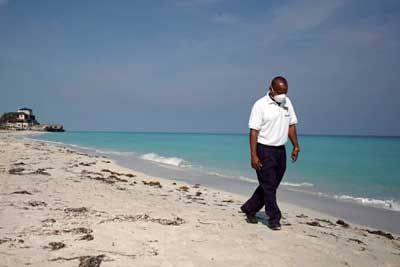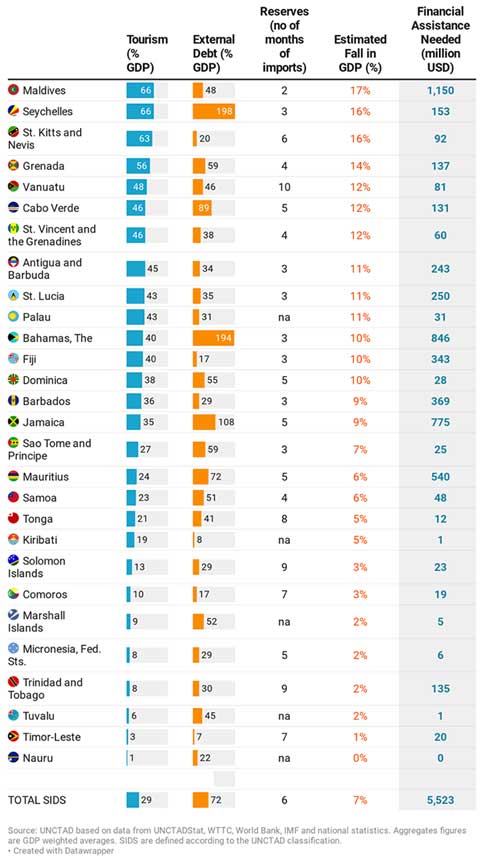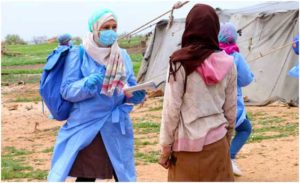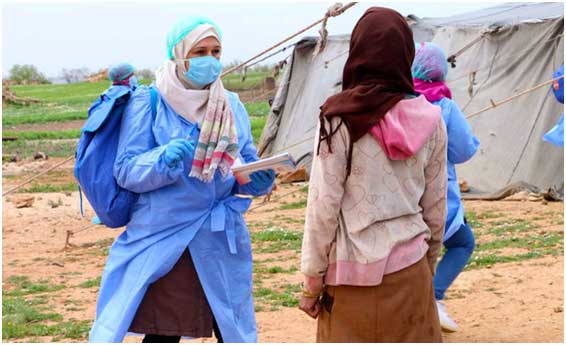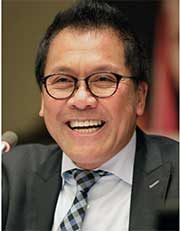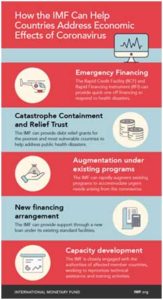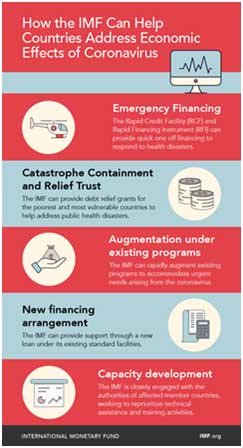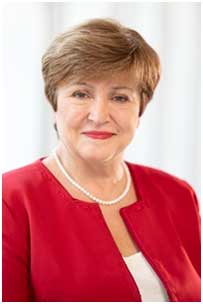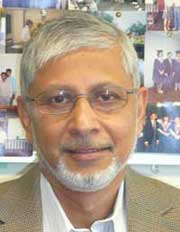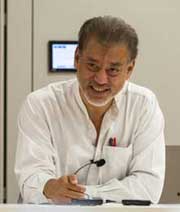
Civil Society, Economy & Trade, Featured, Global, Headlines, Health, Human Rights, Humanitarian Emergencies, Inequity, TerraViva United Nations
David Medine is Senior Financial Sector Specialist at the Consultative Group to Assist the Poor (CGAP). He is also CGAP’s lead on data protection and security and works to develop novel, consumer-oriented approaches to data protection and to encourage the creation of cyber security resource centers for developing countries.

Credit: County of Los Angeles
– In the Philippines, Peru, India, Kenya, South Africa and many other developing countries, poor people who are already struggling with the health impact of the coronavirus pandemic have been targeted by online fraudsters trying to take unfair advantage of them.
There is the risk that these scams could undermine confidence in digital technologies that are proving so very important in keeping people informed and connected during the pandemic.
In particular, trust in digital financial services, which have been useful in advancing financial inclusion efforts, could be damaged at the very time that they have proven to be an effective means of getting payments to poor people quickly and efficiently.
Here are some examples of virus-related scams:
-
- attack is offering housebound people in India a free Netflix subscription during the lockdown if they click on a survey link and forward the message to 10 WhatsApp users.
-
- • Emails with suspicious links have also been sent purporting to be from the World Health Organization, United Nations and Centers for Disease Control and Prevention.
-
- have been visiting homes in South Africa to “recall” banknotes and coins they say are contaminated with the coronavirus, providing receipts for “clean” cash that is never delivered.
-
- offers of emergency money for essentials have been reported in India.
-
- • INTERPOL
-
- that criminals have been calling victims pretending to be clinic or hospital officials, reporting that a relative has fallen sick with the virus and requesting payments for medical treatment.
-
- • People desperate to protect themselves are falling for offers of
-
- medical products, such as masks, vaccines and
- • Education and COVID-19: UN helps children continue their learning
There have even been false claims that the coronavirus is related to exposure to new technologies (such as 5G, which can be used to deliver money mobiles services). There are measures authorities can take in response to better protect consumers.
Regulators, providers and consumer protection agencies can alert people to the risks; providers can make sure they have adequate consumer complaint mechanisms in place; and law enforcement can coordinate firm action, not only in country but across borders.
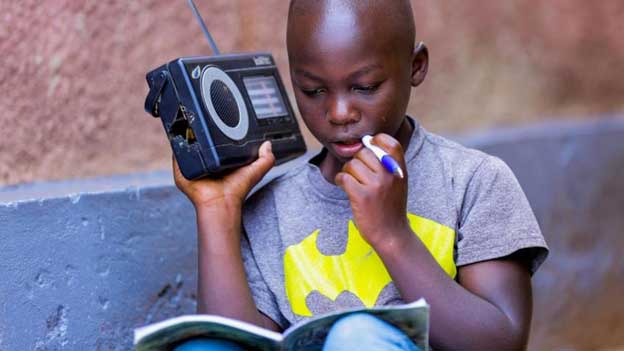
Credit: United Nations
Preying on vulnerable populations in developing countries at a time of crisis is unconscionable. A multi-pronged effort is needed to protect more people from becoming victimized at a time when many are struggling with lost income as a result of being forced to stay at home to combat the illness.
A concerted effort by the public and private sectors is needed to protect customers through educational efforts and high visibility law enforcement actions.
In the short term, education is key, and governments are often best positioned to take the lead. For instance, the South African Banking Risk Information Centre (Sabric) has been warning bank customers about criminals exploiting the virus to engage in phishing.
Similarly, the Philippines Department of Information and Communications Technology has asked Filipinos to be mindful of their safety online and to be wary of unverified COVID-19 websites or applications that require consumers to provide their personal data.
There is a need for governments to continue to identify consumer protection threats — initially, by reaching out to banks, microfinance institutions, fintechs, NGOs and other entities to find out what they are seeing in their markets. Efforts should then be made to warn people how to identify potential scams.
The Central Bank of South Africa has stated that neither banknotes nor coins have been withdrawn from circulation, so anyone offering to “recall” currency should be met with a skeptical eye.
While there is a natural instinct to provide financial support for friends and family in need of medical care, it is important to follow INTERPOL’s warning and confirm that unknown callers are really acting on their behalf. Such consumer warnings could be sent via SMS, WhatsApp or along with other governmental communications.
The private sector must also play a critical role in protecting consumers during the crisis. In the course of providing financial services, trusted firms can educate customers about how to avoid pitfalls, such as responding to fraudulent communications.
There is also the need for digital financial services companies to have effective consumer complaint and resolution centers so that customers who have been scammed have some recourse.
Prosecuting digital scam artists promptly and meting out harsh punishments will send a strong message. One recent example is the response to a brazen attempt by a fraudster in India purporting to sell the world’s tallest statue, the Statue of Unity, for $4 billion to raise money for the Gujarat state to fund its fight against coronavirus.
This action led the Indian police to lodge a case. Similarly, Indian police have registered cases against fake offers of discounted Jio and Netflix services. Such enforcement actions help further educate members of the public about protecting themselves against fraudulent actors.
In the connected world in which we live, it is often easier to commit fraud across borders than inside one’s own country. There is no better time than now for governments to work with their neighbors and go after criminals in each other’s countries.
Such an effort has been led by INTERPOL, an inter-governmental organization with 194 member countries, including many developing countries. INTERPOL has been receiving information from member countries on a near-daily basis regarding coronavirus fraud cases, along with requests to help stop fraudulent payments.
While targeted victims have been primarily located in Asia, criminals have used bank accounts in other regions such as Europe. INTERPOL has helped national authorities to block some of the payments, assisting with some 30 COVID-19 related fraud scam cases.
Where cooperative agreements between countries do not exist, perhaps a silver lining of the current crisis would be to promote such cross-border consumer protection efforts.
Collectively, we can combat the outrageous attempts by some to take advantage of this crisis for their financial benefit. Of course, to survive many people will need more medical and financial help, not just tips on how to avoid scams.
Many countries have undertaken wide-ranging relief efforts. Digital financial services, such as mobile money, are proven mechanisms for getting financial aid quickly to the poorest and neediest in times of crisis.
Let’s take steps now to ensure digital technology is used as a force for good.



